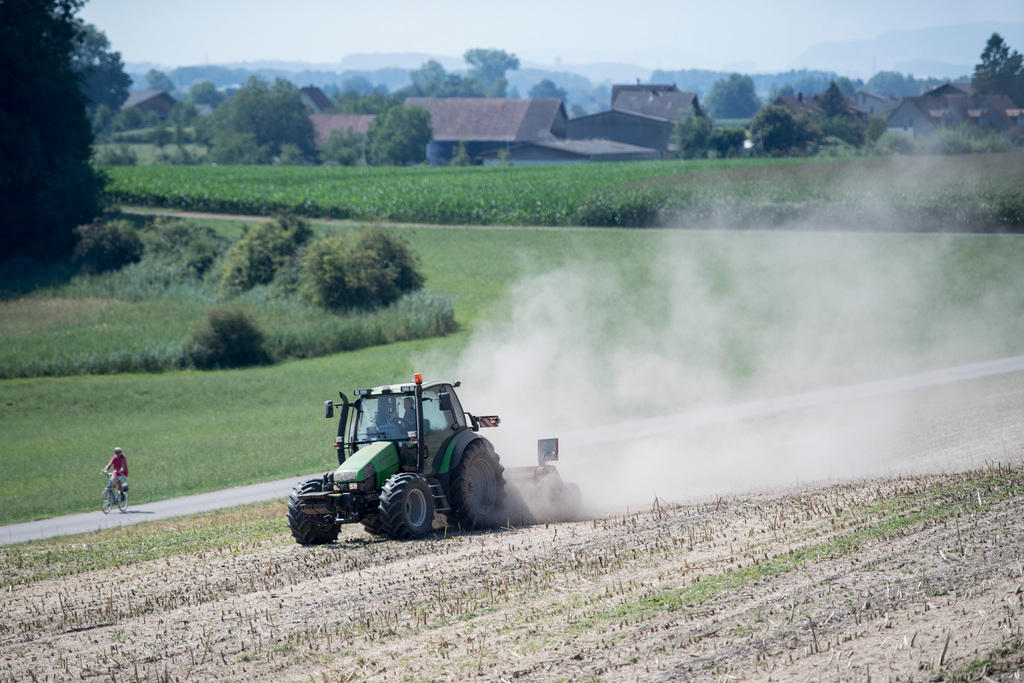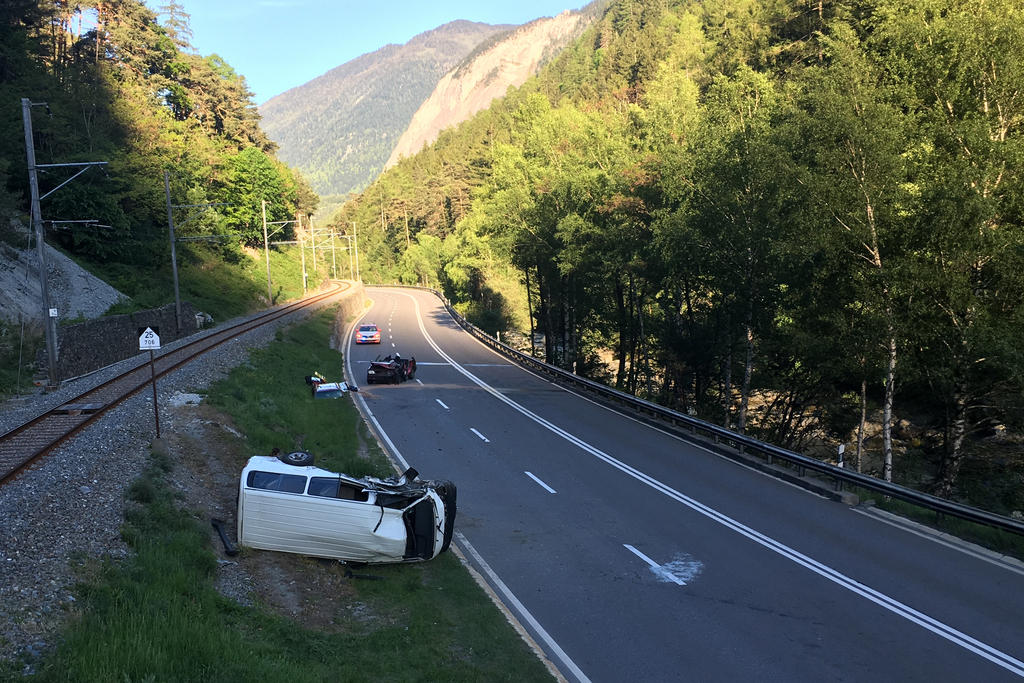
Swiss agriculture sector sees sharp increase in fatal accidents

At least 42 people were killed in a work-related accident in the Swiss agriculture sector in 2018, with most accidents occurring during the operation of farm machinery and vehicles.
The figure, reported in an articleExternal link (in German) published this week by the agricultural information service (LID), represents 19 more deaths than in 2017. Reasons for the increase are unclear and must be analysed, according to Dominique Thiévent of the Counseling Center for Accident Prevention in Agriculture (BUL).
Since 1996, nearly 1,000 people have been killed in a work-related accident in Swiss agriculture. However, as there is no obligation to report these accidents, the figures could be much higher. More than half of fatal accidents (57%) took place during the operation of machines and vehicles.
The BUL will act to counter this phenomenon next year via a working group that will meet for the first time in January. The group will focus on preventing accidents, especially through the use of seat belts during agricultural work.
According to Thiévent, many farmers believe that it is better not to be attached to a machine or vehicle, so they can jump off of it more easily. But, “the many tragic accidents show that this is bad reasoning”, Thiévent said.
New tractors on the market have only been required to be equipped with seat belts starting in 2018. But wearing a belt is only mandatory when driving on the roads or over 25 kilometres per hour (15.5 mph). Thiévent recommends also equipping older vehicles with belts, as well as buckling up even in fields and at slow speeds.

More
Fatal traffic accidents in Switzerland at record low

In compliance with the JTI standards
More: SWI swissinfo.ch certified by the Journalism Trust Initiative
















![The four-metre-long painting "Sonntag der Bergbauern" [Sunday of the Mountain Farmers, 1923-24/26] had to be removed by a crane from the German Chancellery in Berlin for the exhibition in Bern.](https://www.swissinfo.ch/content/wp-content/uploads/sites/13/2025/12/01_Pressebild_KirchnerxKirchner.jpg?ver=cb688ed5)














You can find an overview of ongoing debates with our journalists here . Please join us!
If you want to start a conversation about a topic raised in this article or want to report factual errors, email us at english@swissinfo.ch.